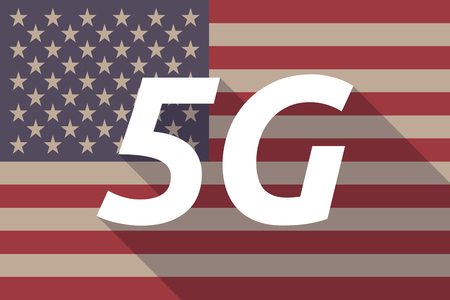Trump meets with “Tim Apple” in Austin
U.S. President Donald Trump urged Apple’s CEO Tim Cook to see if the company could get involved in the deployment of 5G infrastructure in the country.
“I asked Tim Cook to see if he could get Apple involved in building 5G in the U.S. They have it all – Money, Technology, Vision & Cook!” Trump tweeted, without elaborating on how he expects the Cupertino-based firm could contribute in the 5G field.
Trump met Tim Cook on November 20 during his visit to Apple’s campus in Texas.
Trump has recently said that the United States intended to deploy 5G services rapidly and plans to cooperate with “like-minded nations” to promote security in next-generation 5G networks.
The Trump Administration has been urging key allies not to allow Chinese vendor Huawei Technologies to take part in 5G rollouts over security allegations. Washington considers that the Chinese government uses Huawei’s gear for spying purposes.
Huawei was added to the Entity List in May this year after the Department concluded that the vendor was engaged in activities that are contrary to U.S. national security or foreign policy interests.
In related news, the U.S. Department of Commerce (DoC) gave the green light for a select number of U.S. companies to resume sales to Huawei, Reuters reported.
Sources told the news agency the DoC had already reviewed around half of nearly 300 applications it received for special trade licences. Approximately 75 were granted approval, according to the report.
The DoC confirmed that these licences cover “limited and specific activities which do not pose a significant risk to the national security or foreign policy interests”. However, the agency did not specify which companies had obtained the permits.
Earlier this month, U.S. Commerce Secretary Wilbur Ross had confirmed that the U.S. government was expecting to soon start to issue the first licenses for U.S firms looking to sell components and software to Huawei.
Ross also said that the government was surprised by the number of requests and planned to “approve quite a few of them”, with licenses “forthcoming very shortly.”
Earlier this week, The Bureau of Industry and Security (BIS) of the U.S. Department of Commerce officially announced that it will extend for 90 days the Temporary General License (TGL) for Huawei and its non-U.S. affiliates which are subject to the Entity List.
The TGL authorizes U.S. companies to make specific, limited engagements in transactions involving the export, reexport, and transfer of items to the Chinese vendor.
The TGL extension will allow U.S. carriers to continue to service customers in some of the most remote areas of the United States.
Outside of the scope of the TGL, any exports, reexports, or in-country transfers of items subject to the Export Administration Regulations (EAR) will continue to require a license, if granted, after a review by BIS under a presumption of denial, the Department of Commerce said.
However, this general license does not cover transactions between U.S. semiconductor manufacturers such as Qualcomm, Intel and Micron and Huawei. These companies are required to apply for special permits in order to continue supplying chips to the Chinese vendor.

